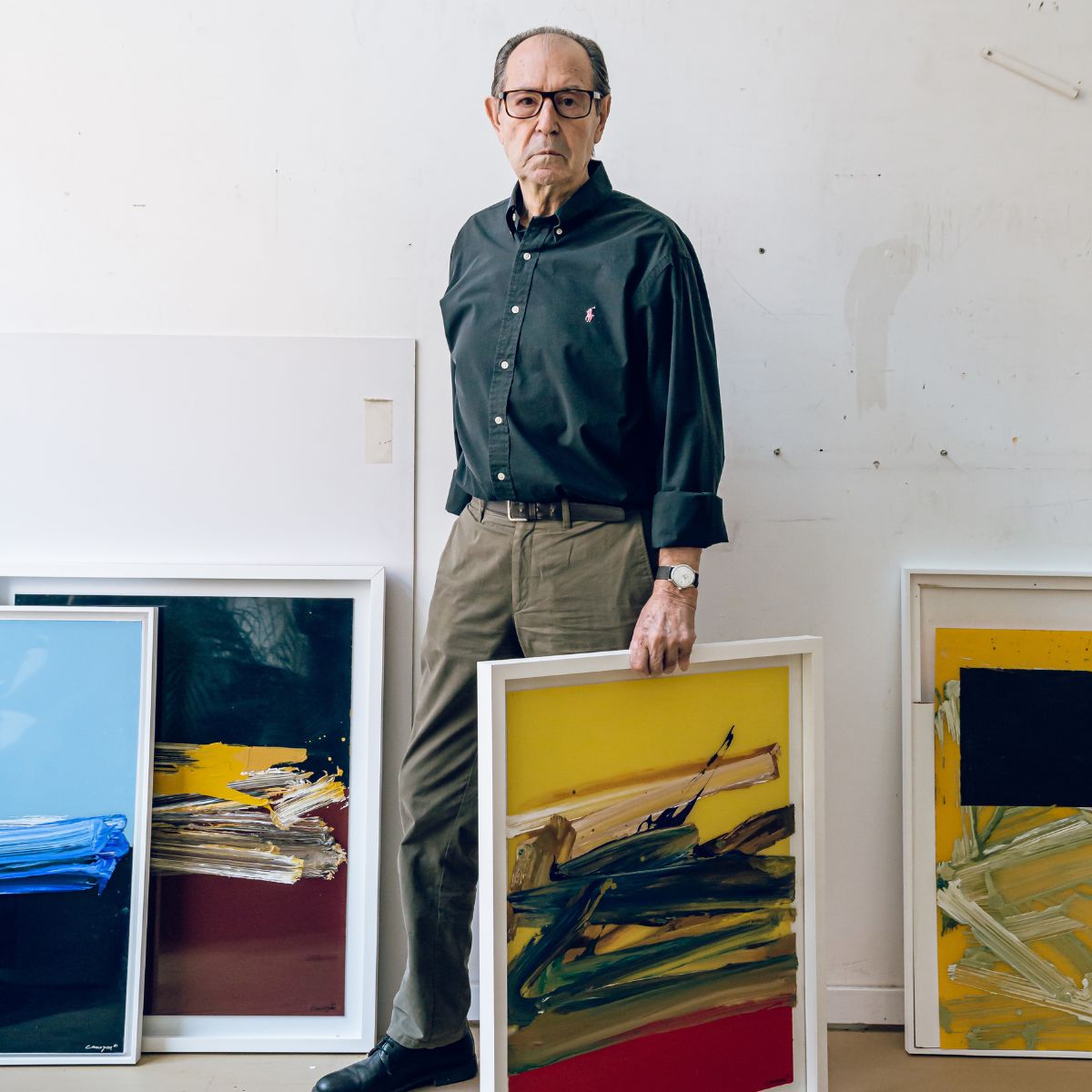Toledo, 1935. Rafael Canogar trained in Madrid in the studio of the painter Daniel Vázquez Díaz, alongside fellow artists Cristino de Vera and Agustín Ibarrola. His early work was marked by an undeniable following of the Cubism of Picasso and Braque ...
Leer más
Toledo, 1935. Rafael Canogar trained in Madrid in the studio of the painter Daniel Vázquez Díaz, alongside fellow artists Cristino de Vera and Agustín Ibarrola. His early work was marked by an undeniable following of the Cubism of Picasso and Braque and the Surrealism of Joan Miró, before evolving towards Informalist abstraction. After attending classes with models at the Círculo de Bellas Artes in Madrid, he participated in the creation of the El Paso group (1957-1959), with his first exhibition at the Buchholz Gallery alongside Manuel Millares, Antonio Saura, Luis Feito, Manuel Rivera, Pablo Serrano, Juana Francés, and Antonio Suárez. Technically, his early work was a combination of oils with different types of tempera, to which he later incorporated photography. In the early 1960s, he abandoned Informalist art to focus on reality, reducing his chromaticism to a play of black and white, and gradually returning to the abstraction he had discovered in Paris. His technique continued to evolve through experimentation with materials such as polyester, acrylic, wood, and fiberglass, with which he composes his characteristic collages, works with a vocation for sculpture. His career as an artist has been rewarded with public and critical acclaim in numerous solo exhibitions, and he has been included in collections such as the Museo Nacional Centro de Arte Reina Sofía, the Museum of Spanish Abstract Art in Cuenca, MoMA in New York, the Banco Santander Central Hispano Collection, and the Vatican Museums in Rome, among many others. He has also received countless awards such as the National Prize for Plastic Arts (Madrid, 1982), the Commandery of the Order of Isabella the Catholic (Madrid, 1991), and the Gold Medal for Merit in the Fine Arts of the Spanish State in 2003.
Leer menos


